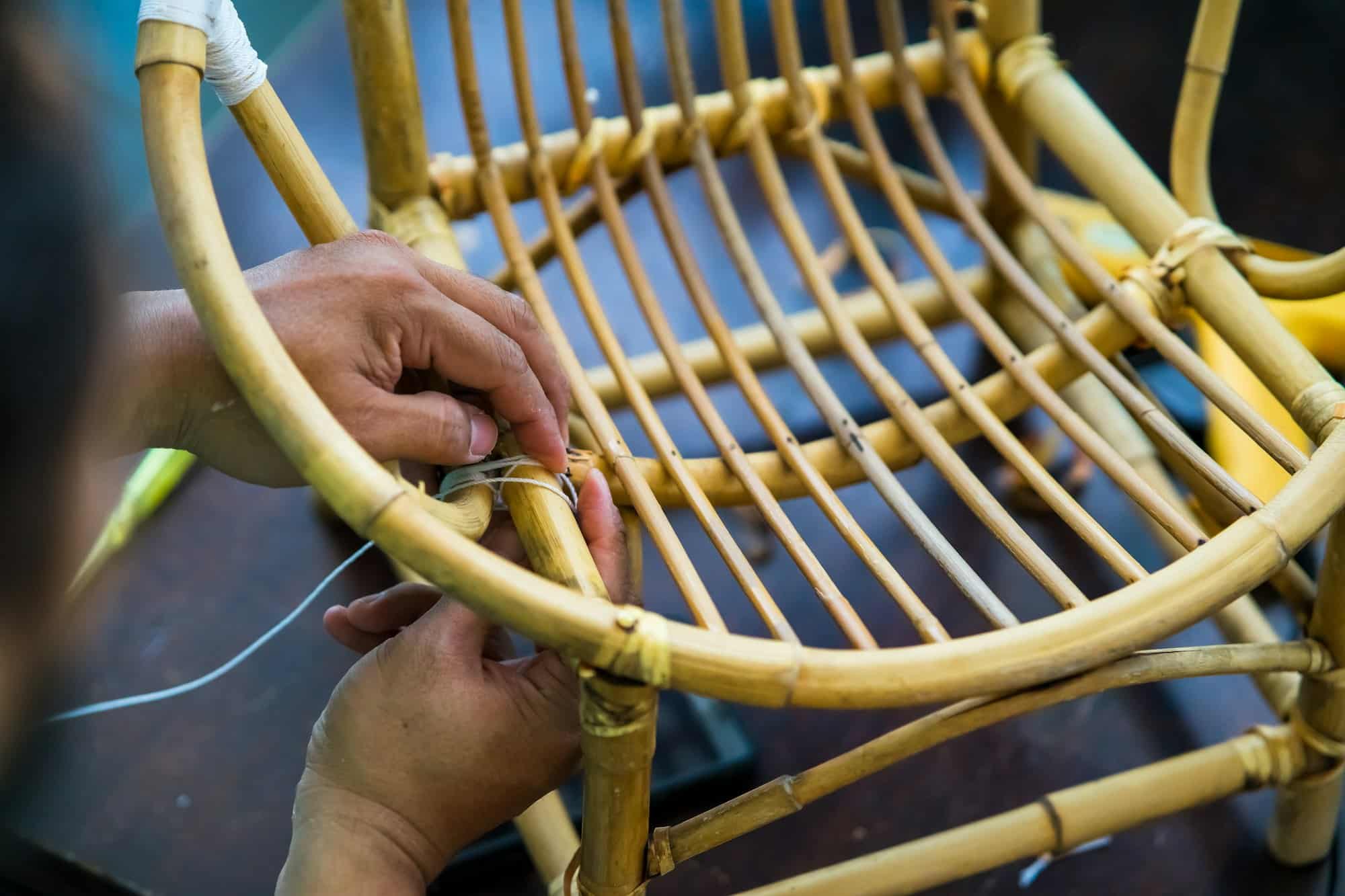How Can Upcycling Crafts Encourage Sustainable Habits Amongst UK Families?

As we confront the reality of escalating waste and the urgency to reduce our environmental footprint, upcycling is emerging as a powerful tool to foster sustainable behaviour. This practice involves repurposing materials in a way that adds value, transforming waste into innovative products. The concept has received increasing recognition across various sectors, including design, education, and community engagement. Moreover, scholars recognise the potential of upcycling crafts to inspire local communities towards a more sustainable lifestyle. This article explores how upcycling crafts can encourage sustainable habits amongst UK families, focusing on the role of community-driven initiatives, educational programmes, and the barriers to participation.
The Community and Upcycling
Community is at the heart of sustainable practices. Above all, community initiatives enable people to engage with sustainability in a meaningful, hands-on way. Through upcycling crafts, the community can come together to reduce waste and lower emissions.
A découvrir également : Why Trust the Essex Asbestos Removal Specialists for Safe Home Solutions?
Local groups across the UK are already harnessing the power of upcycling to drive sustainable change. From craft workshops to repair cafes, these initiatives offer people the chance to learn new skills while creating something of value from discarded materials. Many local councils and community groups are also incorporating upcycling into their waste and recycling schemes, recognising its potential to reduce landfill and carbon emissions.
Upcycling not only encourages sustainable behaviour but also fosters social connection. By engaging in shared activities, community members can strengthen bonds while working towards a common goal. Moreover, the products created through upcycling can serve a practical purpose within the community, furthering a circular model of consumption and waste.
Cela peut vous intéresser : Unlock Success with a Leadership Coaching Programme: the path to effective teams
The Role of Education in Promoting Upcycling
Central to the uptake of upcycling practices is education. Schools and educational institutions play a critical role in instilling sustainable habits in younger generations. Incorporating upcycling crafts into the curriculum can influence pupil behaviour, promoting a more sustainable mindset.
A study by Google Scholar revealed that when children are exposed to sustainability concepts, including waste management, recycling, and upcycling, at an early age, they are more likely to carry these behaviours into adulthood. Furthermore, upcycling can be an engaging and tangible way to teach these concepts, providing students the opportunity to apply their learning in a practical, hands-on way.
In addition, upcycling crafts can also encourage creativity and problem-solving skills. By transforming waste materials into valuable products, students learn to see potential where others see waste. This skill is not only beneficial for sustainable practices but can also contribute to a broader mindset of innovation and resourcefulness.
Overcoming Barriers to Upcycling
While upcycling offers significant potential for promoting sustainable habits, it is not without its challenges. Understanding and addressing these barriers is critical to encouraging more widespread adoption of upcycling practices.
One of the primary barriers is the perception that upcycling is time-consuming or requires specialised skills. Many people may feel intimidated by the idea of repurposing waste materials, particularly if they lack craft or design experience. However, there are many simple and accessible ways to get started with upcycling, and many local community groups offer workshops and resources to support beginners.
A lack of awareness about the benefits of upcycling can also be a barrier. Despite the growing popularity of sustainable practices, many people still view recycling as the primary solution to waste management. While recycling is a crucial part of the waste hierarchy, it still requires energy and emits CO2. On the other hand, upcycling keeps materials in circulation for longer, reducing the need for new products and lowering emissions.
The Power of Upcycling in Shaping Sustainable Behaviour
While the concept of upcycling is not new, its potential to shape sustainable behaviour is only beginning to be recognised. By transforming waste into valuable products, upcycling not only reduces the amount of waste going to landfill but also challenges our throwaway culture.
The tangible and practical nature of upcycling crafts makes them an effective tool for promoting sustainable habits. People are more likely to adopt behaviours that they can see have a direct and positive impact. Upcycling crafts provide a visible demonstration of the value that can be found in what we often discard, encouraging us to rethink our consumption habits.
Moreover, the community-driven and educational aspects of upcycling crafts contribute to their effectiveness. By engaging people in a communal activity and teaching sustainable concepts from a young age, we can foster a society that values sustainability and recognises the role we all play in protecting our planet.
Through transforming the perception of waste, promoting community engagement and integrating upcycling into the education system, we can harness the power of upcycling crafts to encourage sustainable habits amongst UK families.
Upcycling and Household Waste Management
Every year in the UK, households generate nearly 27 million tonnes of waste, according to the Department for Environment, Food and Rural Affairs. A significant part of reducing this colossal amount of waste lies in successful household waste management. Upcycling crafts can be a crucial component of how families handle their waste.
Individuals often overlook the potential of household waste, regarding it as something to promptly discard. However, a shift in perspective toward viewing waste as a resource can catalyse significant change. For instance, repurposing paper or plastic into crafts, using an old sewing machine to create new items from worn-out clothes, or even turning food waste into compost for home gardening, can substantially reduce the amount of waste each household produces.
Moreover, this revaluation of waste aligns with the principles of a circular economy, pushing away from the linear ‘take-make-dispose’ model towards a system where resources are continuously reused and recycled. Upcycling crafts can contribute to this shift, encouraging families to maintain the value of items for as long as possible.
Participation is key in this process. Local authorities must play their part in encouraging household recycling and upcycling activities. This could involve implementing schemes that reward households for reducing their waste, or providing community-based initiatives that offer training and support to families eager to learn about upcycling.
The Role of Behaviour Theories in Advancing Upcycling
Upcycling crafts can encourage sustainable habits amongst UK families through the application of behaviour change theories. According to Google Scholar, the Theory of Planned Behaviour suggests that attitudes, perceived control, and social norms strongly influence our actions.
Applied to upcycling, this theory implies that if families perceive the action as positive (attitude), feel they have the skills and resources to accomplish it (perceived control), and believe it is socially admirable or expected (social norms), they are more likely to engage in upcycling behaviours. Therefore, creating an environment that fosters these factors can significantly increase the recycling rate amongst households.
Community-based initiatives can instigate these behavioural changes by making upcycling activities accessible and enjoyable, hence reducing the perceived barriers to participation. Furthermore, by promoting the environmental benefits of upcycling, such as a decrease in greenhouse gas emissions and a reduction in landfill waste, these initiatives can influence attitudes towards waste management and sustainability.
Education is a key driver of this change, with schools in a prime position to influence social norms around sustainability. By integrating upcycling crafts into the curriculum, schools can inspire their students to become ambassadors of sustainable development, carrying these habits into their homes and wider communities.
Conclusion: Upcycling Crafts as a Path to Sustainable Development
As the climate change crisis deepens, adopting sustainable habits becomes increasingly vital. Upcycling crafts offer an innovative and practical approach to waste management, fostering a more sustainable mindset amongst UK families.
The power of upcycling lies in its ability to redefine waste, transforming what was once discarded into valuable, functional products. This shift in perception aligns with the principles of a circular economy, pushing society towards a more sustainable model of consumption.
While challenges such as perceived difficulty and lack of awareness impede the widespread adoption of upcycling practices, community-based initiatives, educational programmes, and local authorities can play crucial roles in overcoming these barriers. Through these means, upcycling crafts can not only contribute to reducing household waste and greenhouse gas emissions but also foster a society that values sustainability and is actively committed to protecting the planet.
As the world moves towards a more sustainable future, the practice of upcycling crafts stands out as an inspiring and effective way to encourage sustainable habits amongst UK families. By harnessing the power of upcycling, we can all contribute to a more sustainable and resilient world.
